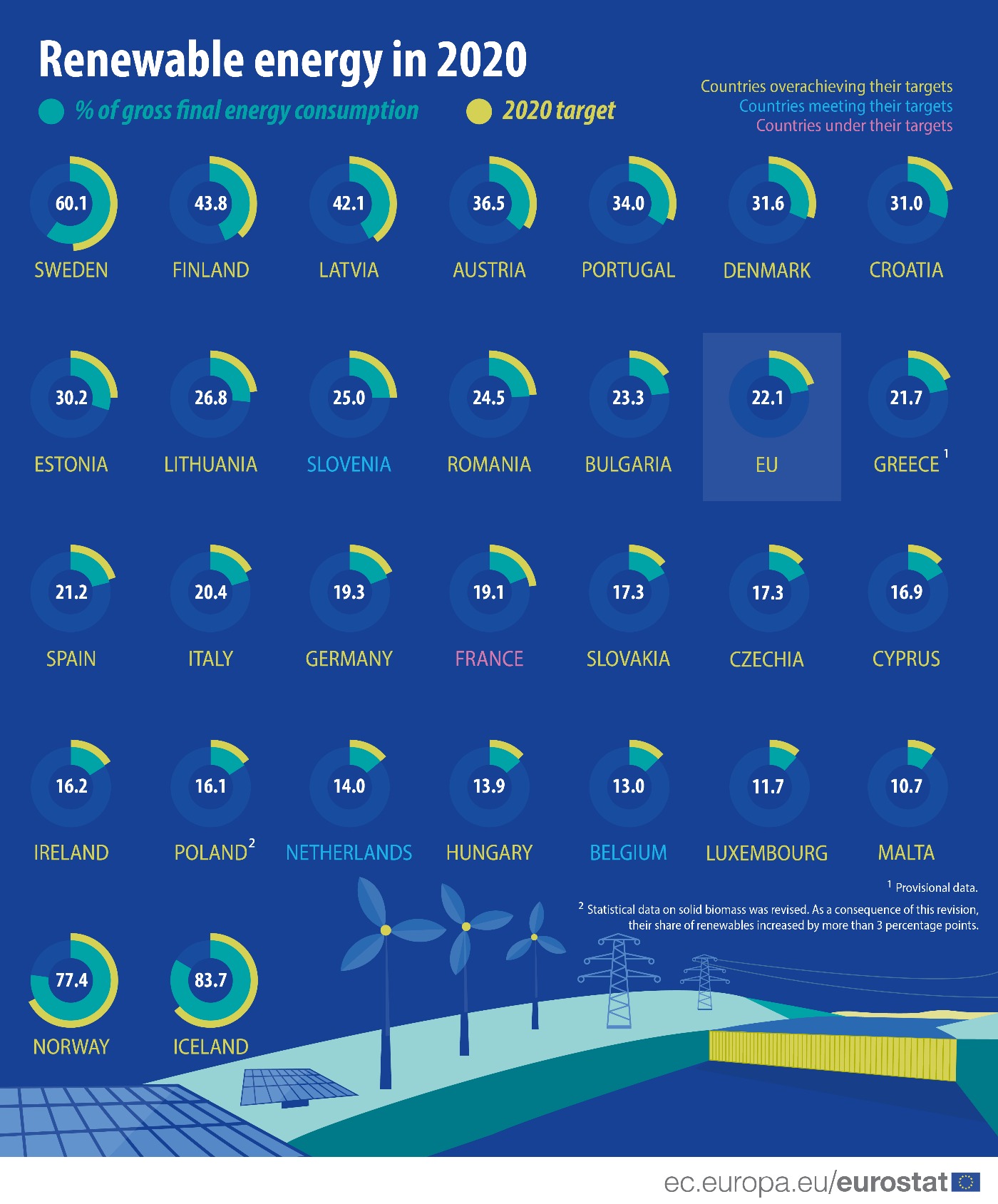At EU level, the share of gross final energy consumption from renewable sources reached 22% in 2020. This is 2 percentage points (pp) above the target level for 2020, as included in Directive 2009/28/EC on the promotion of the use of energy from renewable sources. This is a major achievement and an important milestone in the EU’s path towards climate neutrality by 2050.
This information comes from data on renewable energy published by Eurostat today. The article presents a handful of findings from the more detailed Statistics Explained article.
The Directive also defines 2020 national targets, which were set taking into account the starting point and overall potential for renewables in each country. When looking at the national targets, 26 Member States met or exceeded them for 2020. Some countries had to conclude statistical transfers in 2020 to meet their targets (see the ‘for more information’ section). The Member States that significantly exceeded their 2020 targets were Sweden, Croatia (both +11 pp) and Bulgaria (+7 pp). France, by contrast, fell short of its target (-3.9 pp).
Source dataset: nrg_ind_ren
With more than half of gross final energy consumption from renewable sources, Sweden (60%) had by far the highest share among the EU Member States in 2020, ahead of Finland (44%) and Latvia (42%).
At the opposite end of the scale, the lowest proportions of renewables were registered in Malta (11%), followed by Luxembourg (12%) and Belgium (13%).
For more information:
- Statistical transfers are one of the cooperation mechanisms recognised by Directive 2009/28/EC. These agreements between Member States transfer, for a certain price, a specified amount of energy from renewable sources from one Member State to another Member State.
- Poland: statistical data on solid biomass was revised. As a consequence of this revision, their share of renewables increased by more than 3 percentage points.
- Greece: provisional data.
- Eurostat Statistics Explained article on renewable energy
- Eurostat dedicated section on the short assessment of renewable energy resources (SHARES)
- Eurostat dedicated section on energy
- Eurostat database on energy
To contact us, please visit our User Support page.
For press queries, please contact our Media Support.


